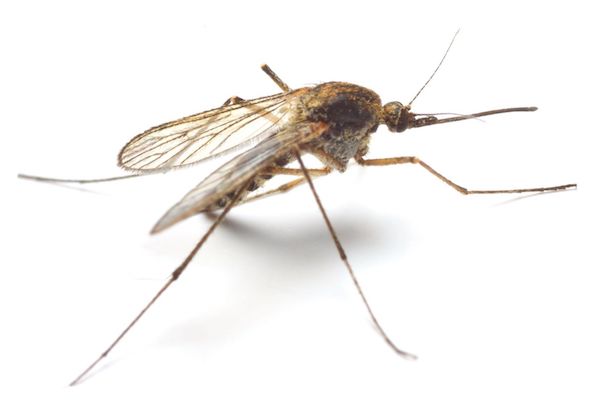Malaria is an infectious disease caused by a parasite (Plasmodium) and spread by the female Anopheles mosquito.

There are five species of Plasmodium that can infect humans and cause malaria, with the most common type in South Africa being Plasmodium falciparum, which is also the most life threatening. This is because the parasite infects red blood cells and causes them to start sticking to blood vessels, which can interfere with the circulation to various organ systems and cause multi-organ failure, including the brain. This results in cerebral malaria – a disease that can cause brain damage, seizures, coma and death.
What are its symptoms?
Malaria causes a flu-like illness in its early stages, usually after an incubation period of nine to 14 days after the mosquito bite occurred, although symptoms can set in later.
Common malaria symptoms include:
- Fever and sweating
- Chills and shaking (episodes of fever followed by chills will often occur in cycles as new waves of parasites are released into the bloodstream)
- Headache
- Nausea and vomiting.
Cerebral malaria is one of the most serious complications of malaria infection and in these cases neurological symptoms such as headaches, convulsions, loss of consciousness and coma may occur.
How is it diagnosed?
Because malaria shares so many of its symptoms with other conditions, often the first step in reaching a malaria diagnosis is finding out if the patient has travelled to any malaria areas – that is, high-risk areas where the disease is prevalent.
A blood test to search for the parasite in the blood will be performed if you start exhibiting flu-like symptoms after having been to a malaria area and exposed to mosquitoes. The most rapidly-acting malaria blood test can give a result within 15 minutes, which may be confirmed with a more comprehensive (but less fast) blood smear test.
What are your treatment options?
Malaria treatment often depends on the type of parasite involved, the severity of the illness and the patients themselves (age, whether or not they are pregnant, and so forth).
According to the World Health Organization (WHO), artemisinin-based combination therapy (ACT) is the best available treatment, particularly as antimalarial drug resistance is becoming a huge issue when treating the disease. Thankfully artemisinin (a Chinese herb first used for the treatment of fevers) is still highly effective.
Throughout treatment the patient’s blood will be retested in order to ensure that parasite levels in the body are dropping. Severe malaria will require hospitalisation, intravenous antimalarial drugs and other supportive measures to manage the symptoms.
Can it be prevented?
According to the WHO, there were an estimated 198-million malaria cases in 2013, but despite the startling statistics, it can be prevented. While scientists are still working on a safe and effective malaria vaccine, prevention efforts should focus on reducing exposure to mosquitoes and on prophylactic measures. When in malaria areas, use insect repellants, sleep under mosquito nets, and wear long sleeves and trousers after sunset.
The medicines used to prevent malaria are the same as those used to treat it – speak to your doctor about the best one for your needs and use it exactly as prescribed, which may even include taking it for a few weeks after your return from a malaria area.
IMAGE CREDIT: 123rf.com
